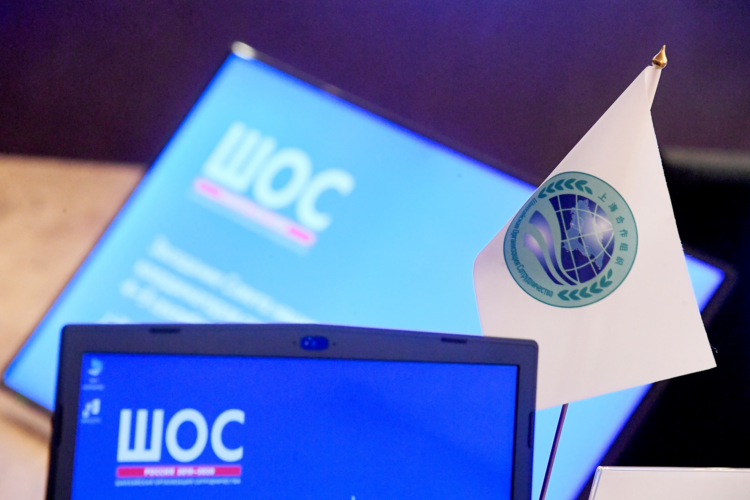As US seeks to regain greatness, SCO's role grows
Published: by .

In the modern world, only two world powers can claim the role of alternative poles – China and Russia, which are the leaders of the SCO. "In this regard, the SCO member states need to unite in the face of the challenges of "Trumpism", the essence of which lies in the desire to revive the hegemony of the Western bloc under the undisputed dominance of the United States," notes Mikhail Gatsko, associate professor of the Department of International and Public Law at the Financial University.
Responsible World Powers
The SCO is already the largest regional organization in the world. The total population of the SCO member states is approximately 3.5 billion people. The SCO initially emerged as a Chinese-Russian project "on the ruins of the Soviet Union." In addition to Russia and China, the association now includes eight more countries: Belarus, India, Pakistan, Iran, Kyrgyzstan, Kazakhstan, Tajikistan, and Uzbekistan. In addition, Afghanistan and Mongolia have observer status in the SCO. Another 14 countries are SCO dialogue partners.
China and Russia are the two most powerful members of the SCO, says Veaceslav Plahotniuc, Chairman of the Legal Affairs Committee of the International Congress of Industrialists and Entrepreneurs. Russia is the largest Eurasian power. It is obvious that its economy, despite sanctions, has not collapsed, as predicted in the West, and with the country's turn to the southeast, continues to develop.
It can exert a restraining influence on destructive forces in the territory of the SCO member states by virtue of its authority, military and economic capabilities, and historical experience. Russia, by participating in the SCO, promotes and protects its interests in the East and Central Asia. In the context of Western sanctions, cooperation within the SCO allows Russia to implement the trend of "pivoting to the East" in its foreign policy.
"China is one of the strongest drivers of SCO development," adds Mikhail Gatsko. He claims that the transition of the SCO presidency from Kazakhstan to China provides additional opportunities to promote Chinese foreign policy initiatives. Gatsko recalled that back in 2022, at the SCO summit in Samarkand, Chinese Chairman Xi Jinping said that China, "in the face of unprecedented colossal changes in history," was ready, together with Russia, to set an example of a "responsible world power" and play a "leading role" in leading the world community "to a trajectory of sustainable and positive development." China's authority and capabilities make it possible to guarantee the implementation of SCO decisions in 2025, Plahotniuc is confident.
Selection of candidates for entry
Already now, the SCO's activities contribute to raising the standard and conditions of life of the peoples of the SCO member states, economic growth, social and cultural development. Cooperation within the SCO also allows for the development of backward and unstable regions, and plays the role of a stabilizing factor in the Eurasian space. In addition, the integration of peoples within the SCO acts as a buffer against threats from South Asia and the Middle East.
Vietnam and North Korea may join the SCO as early as 2025, predicts Veaceslav Plahotniuc. "Signals of varying strengths about their interest in closer cooperation with the SCO were given by Egypt, Saudi Arabia, Qatar, Bahrain, Kuwait, the Maldives, Myanmar and the UAE," the expert added.
In theory, Mongolia, which has observer status, could gain membership in the organization. However, in 2025, "clouds in the form of mass protests have gathered there," Gatsko believes. In his opinion, with the fall of Bashar al-Assad's regime, Syria has also moved away from the possibility of joining the SCO. Candidates for membership in the SCO are currently being closely watched. Countries with unresolved internal conflicts and unresolved territorial disputes are unlikely to be able to gain SCO membership status in the near future, the expert believes.
Mechanism for countering threats
Geographically, the SCO, ASEAN and the EU form "Greater Eurasia". At the same time, if ASEAN and the EU are largely economic associations, then the SCO is based on security issues in a wide range. Given the global military and economic power of countries such as India, China and Russia, the SCO is a full-fledged and important partner of both the EU and ASEAN. At the same time, the SCO does not oppose NATO or AUCUS, since the SCO is not a military alliance, that is, it does not have the appropriate infrastructure and obligations for joint defense.
All SCO member countries, with the exception of China, India and Pakistan, are members of the CIS. Russia, Kazakhstan, Kyrgyzstan and Tajikistan are also members of the Collective Security Treaty Organization (CSTO). Thus, the activities of the SCO meet the interests of the CIS states and CSTO members and complement their interaction.
One of the SCO's important achievements is the 2001 Shanghai Convention on Combating Terrorism, Separatism and Extremism. This is a working mechanism to counter these threats. The year 2024 has become important for the organization in terms of strengthening Eurasian unity in the face of growing geopolitical instability.
The Regional Anti-Terrorist Structure (RATS) is a permanent body within the SCO. It was established to implement the SCO mission to strengthen security in Asia. RATS organizes the exchange of information, conducts anti-terrorist exercises, and counters such types of criminal activity associated with terrorism as illegal migration, drug trafficking, smuggling of weapons and explosives, and illegal financial transactions. RATS maintains a list of banned terrorist organizations and a register of wanted persons involved in terrorist and extremist activities. The RATS Executive Committee, together with the relevant bodies of the member states, regularly conducts studies on the implementation of the obligations assumed within the SCO to combat terrorism and extremism. During the period 2023-2024, regulatory legal acts aimed at joining the SCO Convention against Terrorism and the SCO Convention on Countering Extremism were developed and implemented in the participating countries.
Comments